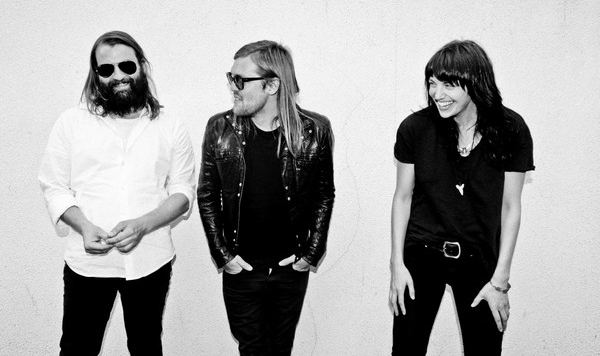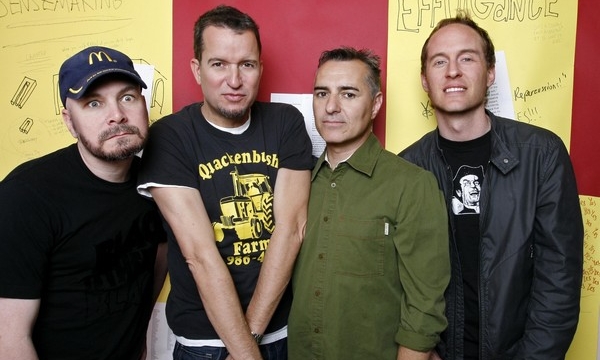“We wrote and recorded it in London over our summer,” says Emma Richardson, the band’s bassist and co-lead vocalist. “We worked with Nick Launay, which was really cool as we hadn’t worked with him in the producer role before. When we were making it, it was all a matter of pushing ourselves – bettering ourselves. We wanted to bring something out that we were all proud of, but it actually came out better than we could have ever hoped.”
Band of Skulls – completed by guitarist Russell Marsden and drummer Matt Hayward – have developed a method within their collective madness when it comes to writing new material. It was never more prevalent than during the creation of Himalayan – as Richardson explains, it was a matter of breaking down the elements of the band and rebuilding from there. “It all comes together piece by piece, really,” she says. “We all write individually and have a bunch of ideas, then we’ll get our demos together and go from there. We see what works together – it’s like we’re assembling a puzzle or something. You can’t see the full picture until you get it all in the right order. It’s an interesting balance between some kind of competition and some kind of democracy. We want to always better ourselves and compete, in a way, with one another; but it’s always for the greater good. A better song always comes out of it.”
The band’s tour in support of Himalayan will bring them back to Australia yet again, less than a year since their last run of dates. As well as playing as a part of the gargantuan Bluesfest lineup, the band will play a few headlining shows in between dates, opening for the festival’s headliners, The Black Keys. If you haven’t caught the band on this album cycle yet, expect to hear a substantial amount of Himalayan – although it may not be the exact same set of tracks from it every night.
“I think we’ve played three quarters of the record live on tour,” explains Richardson. “We more or less tag them in and out – give some an airing, give some a break. The record is still relatively new to us, so we don’t want to grow tired of it too quickly. It’s almost our duty as a band to try and keep it as exciting as possible. I remember we were playing a few shows a couple of weeks after we’d finished recording. We were playing a couple of the new songs, and even then it felt like they were already changing. I think that’s a part of the natural progression of writing songs. We like to play around with our creations – there are some songs that have managed to change every night. We’ll mix that in, typically, with as many of our old songs that we can fit within an hour and a half. We want it to fly by so fast that people do a double take – the kind of show where they’ll turn to their mates and ask, ‘What just happened?’ ”
Despite the often layered nature of their songs, the band have never employed another guitarist – or any studio, session or touring members, for that matter. The band put a great importance on what you hear being exactly what you get. “There’s something there when the three of us play together,” says Richardson. “It’s an unsaid thing, in a lot of ways. We feed off one another when we’re playing. You can’t describe it – you instinctively know what’s going to happen next, or who in the band is going to make the next move. There’s a trust there. We may start out playing the songs as we know them, but we don’t ever want to be limited by that.”
2015 will mark the 11th year of Band of Skulls. A lot has been achieved by the band in that time, but perhaps one of the more overlooked aspects is the fact that they’ve never changed their lineup. While many bands come and go, Band of Skulls have remained a sole constant. Richardson narrows it down to an ability to see true friendship over everything else.
“We were a bit of a gang back in school,” she says with a laugh. “We were mates, and we ended up playing music together. It was never meant to be anything beyond that – we had no greater hopes of becoming famous or anything like that. We wanted to play music and make records – sometimes, you don’t think about what could happen from there. It doesn’t factor in. So I suppose that core friendship has been what kept the band together all this time. It helps you to deal with the knocks, the blows, the bad times, the good times. It’s what makes you stronger as a band.”
BY DAVID JAMES YOUNG

